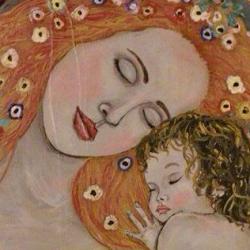Robert Provine (Curious Behavior) notes that we can’t laugh on command, and that tells a lot about our laughter and ourselves. In his experiments, he found that it took longer for people to laugh on command than to say “ha, ha.” That “indicates that laughter is not spoken, and that different neurobehavioral mechanisms are involved.”
More generally: “none of us can accurately explain why we laugh. We are stubborn, arrogant beasts, unwilling to cede the illusion of self-control. Our explanations for laughing—to put someone at ease, to show friendship, to be playful, to ridicule, and so on—are simply post hoc rationalizations of the irrational that falsely presume the conscious control of involuntary acts.”
Camaraderie accounts for a good deal of it. Provine’s students kept logbooks of laughter and discovered that they “laughed about thirty times more when they were around others than when they were alone—laughter almost disappeared among solitary subjects not exposed to media stimulation. Such a huge effect is gratifying in the social sciences, where effects are often tiny and variability high. . . . People are much more likely to smile or talk to themselves than they are to laugh when they are alone. Although we probably laugh or smile more when we are happy than sad, these acts are performed primarily in response to face-to-face encounters. You are least likely to laugh, smile, or talk immediately before bedtime and after waking, circumstances with reduced opportunities for social interaction.”
Provine discovered that “contrary to expectation, most conversational laughter was not a response to jokes or humorous stories.” Rather, “most laughter followed banal remarks such as ‘Look, it’s Andre,’ ‘Are you sure?’ and ‘It was nice meeting you too.’” Not jokes, but “mutual playfulness, in-group feeling, and positive emotional tone . . . mark the social settings of most naturally occurring laughter. Laughter is more about relationships than humor.”
He also discovered that “the average speaker laughs about 46 percent more often than the audience. This contrasts with the scenario of stand-up comedy in which a non-laughing speaker presents jokes to a laughing audience. Comedy performance proves an inadequate model for everyday conversational laughter.”















